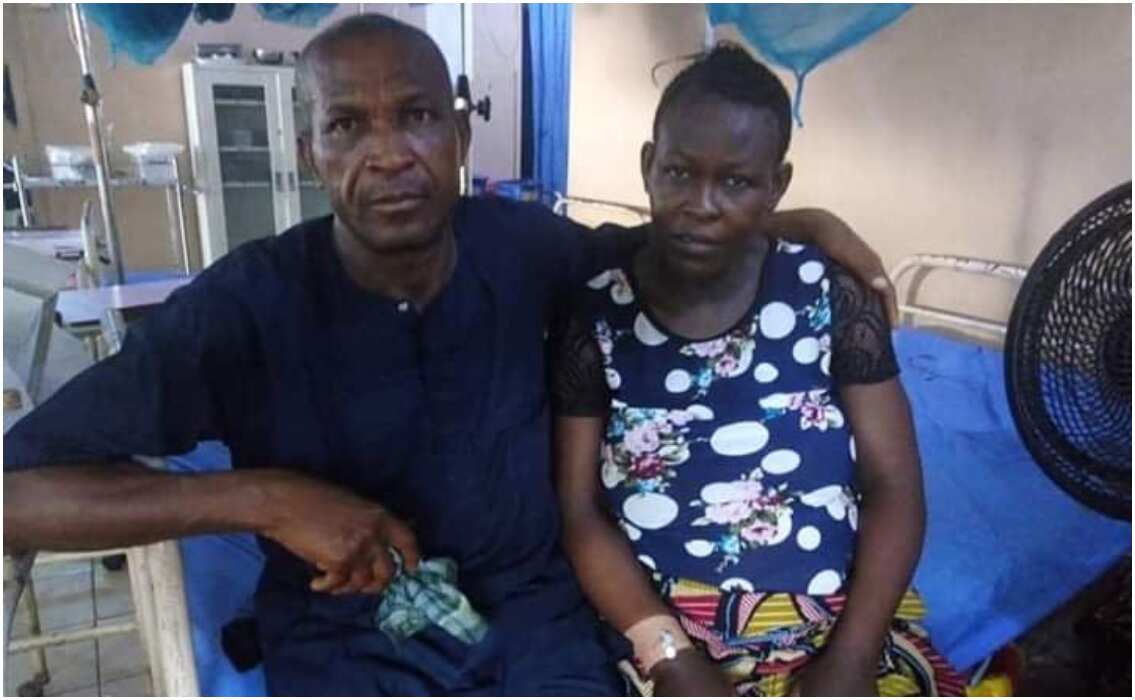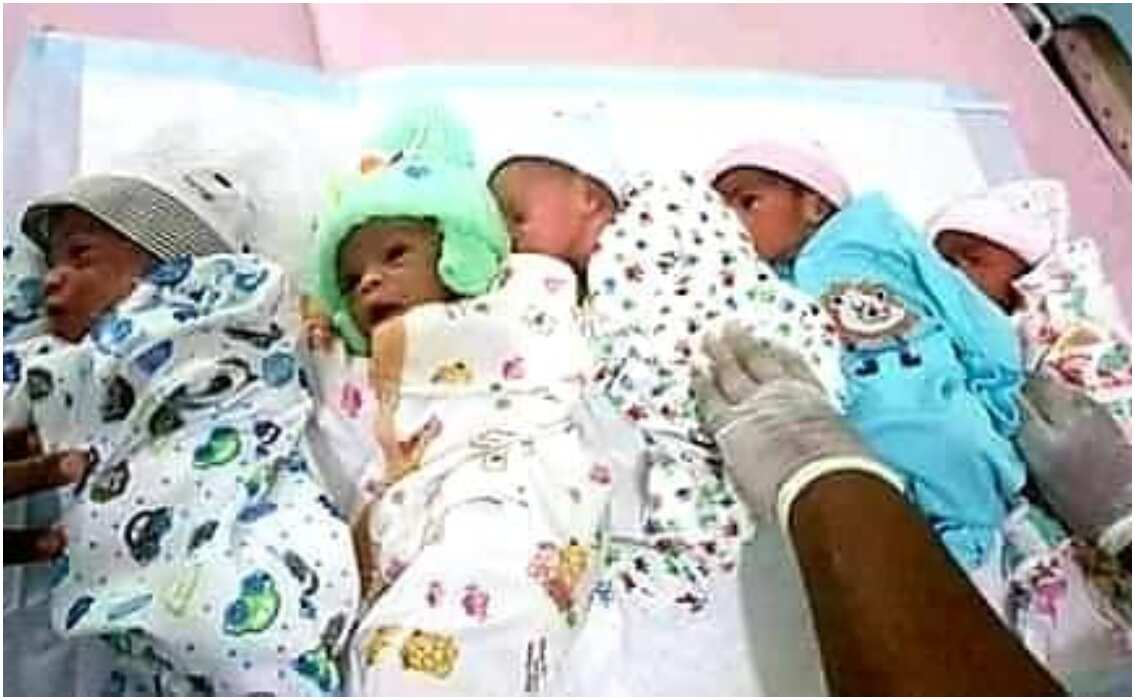- Woman gives birth to quintuplets after 18 years of marriage
- The babies were conceived through In vitro fertilization (IVF) in Abia state but delivered in Kogi
- The father of the babies, James Okeigbo, is a transport agent and cries out for financial assistance to take care of his children
Legit.ng had reported the story of a 42-year-old woman who gave birth to five babies at the Federal Medical Centre (FMC) in Lokoja, Kogi state, after 18 years of waiting.
The woman identified as Uchenna Okeigbo delivered her kids safely and they all are in good condition. Okeigbo, who is an indigene of Olokoro Amangbo Community, Umuahia south local government area of Abia state, gave birth to three boys and two baby girls on Wednesday, April 17, through a caesarean section.
In line with our culture of reporting verified story, Legit.ng reached out to the woman and her husband on their birth of their bundles of joy. While the mother of the quintuplets said she is too weak to talk as she is still recuperating, the excited father of the babies, James Okeigbo, willingly opened up on their journey to being parents after 18 years of waiting.
PAY ATTENTION: Install our latest app for Android and read the best news about Nigeria

Parents of quintuplets born in Kogi, James and Uchenna Okiegbo
Source: UGC
Sharing his excitement on becoming a father for the first time in his life, James said the journey started with an IVF done in Abia, his home state but the babies were delivered in Kogi state since he works and lives in Obajana area of the state. He works as a transport agent with a company owned by his brother-in-law. James claimed he has been in Kogi state for 10 years now.
He said: I am the most excited man in Nigeria and in the world"

Okeigbo's quintuplets born after 18 years of waiting
Source: UGC
READ ALSO: Pretty Nigerian triplets share story surrounding their birth as they turn a new age
When asked about how he will be able to take care of his quintuplets, James, in a shaky voice, said "That is my problem now . I know it will not be easy and it has been making think too much. I think a lot and I am afraid. I know i need financial assistance anywhere it can come because I know my salary cannot sustain us. Even to pay hospital bills, it has been help from my brother-in-law."
Legit.ng also spoke with Uchenna's elder brother, Gabriel Okechukwu, who has stood by the family since the birth of these children. He owns the company the father of the quintuplets works. Uchenna said though he has been of assistance to the family, he cannot do it all alone. He said the family needs help from well-meaning Nigerians for their joy to be full over these children.
Well meaning and kind-hearted Nigerians willing to help the family can donate money into the account of the father of the quintuplets: James Okeigbo, Zenith Bank account number 2081974311.
NAIJ.com (naija.ng) -> Legit.ng We have upgraded to serve you better
News Today: Woman Delivers Quintuplets in Anambra, Asks Nigerians for Help | Legit TV
Source: Legit.ng
from Legit.ng: Latest Nigeria News Today & Breaking Naija News 24/7 http://bit.ly/2Pov5MY
via EDUPEDIA24/7
Comments
Post a Comment